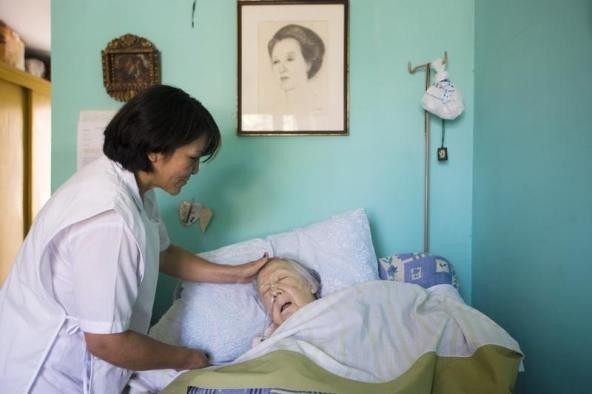Discrimination against elderly people within the NHS is set to worsen thanks to new “highly unethical” targets being set by the UN which prioritise treatment for younger people, senior medics have warned. Charities have spoken out against an “alarming” cultural trend of viewing older people merely as a burden on society.
Elderly people are already being denied life-saving treatment within the NHS thanks to age discrimination within the system. Last year the Royal College of Surgeons called attention to the fact that, in some parts of the country, almost no-one over the age of 75 was receiving surgery for breast cancer or routine operations such as gall bladder removal or knee replacements.
But that situation is set to be exacerbated by the UN’s proposed new Sustainable Development Goals exhorting governments to cut the number of premature deaths from diseases including cancer, stroke, diabetes and dementia by one third by 2030, the Telegraph has reported.
However, as many of these diseases are age related, people over 70 who succumb to them are not deemed to have died prematurely and so are exempted from the targets. Around 42,000 lives are expected to be saved each year if the targets are met as they stand. But including the over 70s would hope to see 130,000 lives a year saved.
Baroness Sally Greengross, former director of Age Concern England said:
“If adopted, this UN target could lead to institutionalised discrimination against older people in health care, both here in the UK and globally.
“This target will inevitably reinforce the ageist bias that pervades many aspects of health care decision-making.”
Lady Greengross along with representatives from The Alzheimer’s Society, Age UK, and The London School of Hygiene and Tropical Medicine, has co-signed a letter to the Lancet, warning that the target: “has the potential to undermine cherished, fundamental principles of universality and health as a right for all.
“Put simply, it tells policy makers, particularly in poorer countries that older people do not matter,” she said.
Prof Peter Lloyd-Sherlock, professor of social policy and international development at the University of East Anglia and lead author of the letter, said:
“This premature mortality target is highly unethical, since it unjustifiably discriminates against older people.
“We already know that there is age discrimination in cancer care and surgery and these targets give that the stamp of approval.
“The targets are not quite set in stone yet, so we have a final opportunity to impress upon the UN the need to alter this explicitly ageist health target.
“If this doesn’t happen, people aged 70 and over will become second-class citizens as far as health policy is concerned.”
The policy is not mandatory, however the UN is likely to make its displeasure known if governments fail to go along with it. It is part of a growing trend to see older people as no longer useful members of society, or simply as a drain on resources.
The vast majority of victims in the Mid Staffordshire scandal, in which poor health provision in at Mid Staffs hospital claimed between 400 and 1,200 lives, were elderly people unable to fend for themselves.
Many were left to die of hunger and thirst, with one gentleman reported to have resorted to drinking out of a nearby flower vase to stay alive. Others fell to the floor and were left where they lay for hours, later dying of injuries including broken bones.
And last year, the National Institute for Health and Care Excellence (Nice) came under fire when it attempted to change its drugs funding guidelines to include a need to take into account “wider societal benefits” when making a decision. Health experts slammed the move as “deeply suspect”, warning that elderly people may lose out as they are not deemed to be as useful to society.
In 2013, the government introduced new age discrimination laws, making it illegal to refuse care on age grounds only. A spokesman for the Department of health said: “It is wrong to deny people treatment just because of their age, which is why we made it illegal. Decisions on care should only ever be based on clinical need.”
But Tom Gentry, policy advisor at AgeUK has argued that there is still a long way to go, saying “We know that access to surgery is getting worse for older people, and yet we are talking about people who still have years left to live. We need to improve. We are fighting entrenched cultural attitudes about the value of older people and this target will not help that.”

COMMENTS
Please let us know if you're having issues with commenting.